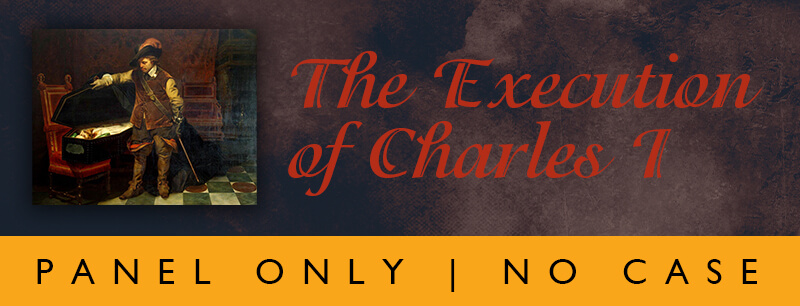
The trial lasted eight days, during which the king’s involvement in the Civil Wars was outlined by witnesses, and he was accused of having approved atrocities against the people and prolonging the wars. On January 27, Charles was found guilty as a “Tyrant, traitor, murderer and public enemy to the Commonwealth of England” and sentenced to beheading. The vote was split 68 to 67, suggesting that if the king had defended himself, or at least shown a willingness to work with Parliament, he could have saved himself. Also of interest is the fact that only 59 of the 159 commissioners – among them Oliver Cromwell – were willing to sign their names to the king’s death warrant.
To prevent Charles II from being declared king upon Charles I’s death, Parliament quickly enacted a bill making it illegal to make a proclamation of succession on the death of Charles I. Charles I was executed on January 30, 1649. His last words were, “I go from a corruptible to an incorruptible crown, where no disturbance can be.” After his death, Charles was considered a martyr by many Anglicans, despite attempts by Parliament to prevent this view.